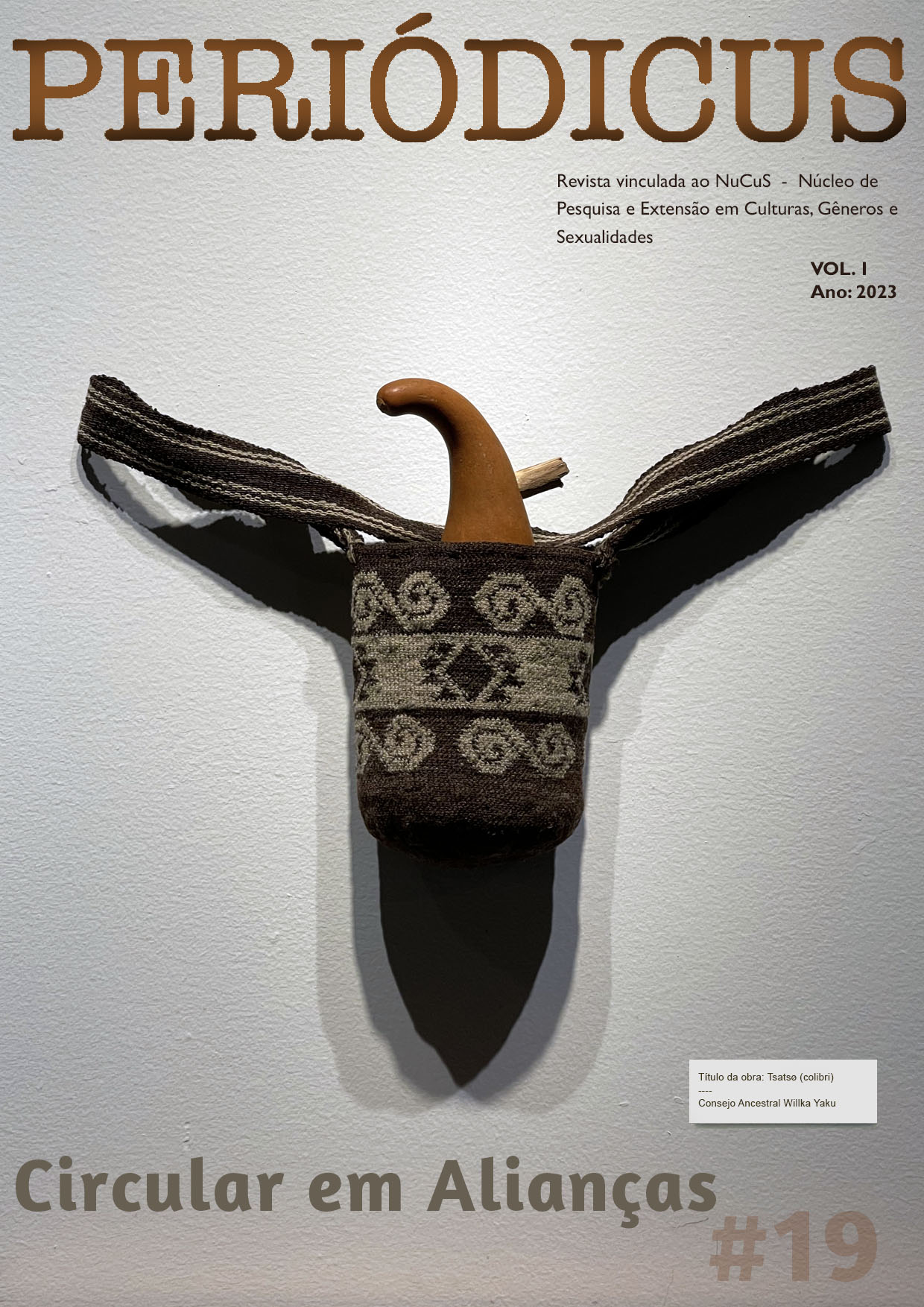“O homem que virou suco”
masculinity notions in dispute in Brazilian cinema
DOI:
https://doi.org/10.9771/peri.v1i19.49982Abstract
Society organizes itself amids a web of cultural, political and social components that, historically, interpellate the population and can articulate plural ways of subjectivation. Following this perspective, the present paper understands Brazilian cinema as a technology which produces hegemonics perspectives and gender dissidents. From the documentary analysis of the movie “O homem que virou suco”, produced in the country in 1980, this research problematizes, more specifically, a part of the masculinity notions that are articulated in the piece, from an intersectional perspective. The conclusion highlights the importance of Brazilian cinematography productions on the denunciation and further analysis of the structural conditions that imply inequalities and suffering of the population.
Downloads
Downloads
Published
How to Cite
Issue
Section
License
Copyright (c) 2023 Flávia Fernandes Carvalhaes

This work is licensed under a Creative Commons Attribution-NonCommercial 4.0 International License.
Authors who publish in this journal agree to the following terms:
Authors retain copyright and grant the journal the right of first publication, with the work simultaneously licensed under a Creative Commons Attribution Noncommercial License that allows the work to be shared with acknowledgment of authorship and initial publication in this journal, but prohibits commercial use.
Authors are authorized to enter into separate additional contracts for non-exclusive distribution of the version of the work published in this journal (e.g., publishing in an institutional repository or as a book chapter), with acknowledgment of authorship and initial publication in this journal.
Authors are permitted and encouraged to publish and distribute their work online (e.g., in institutional repositories or on their personal website) at any point before or during the editorial process, as this can generate productive changes and increase the impact and citation of the published work (see The Effect of Open Access).








